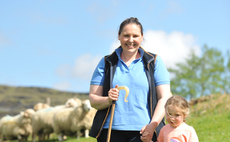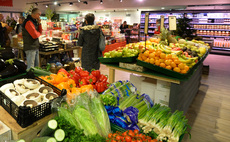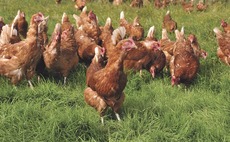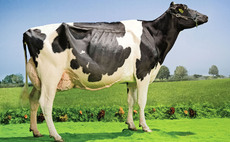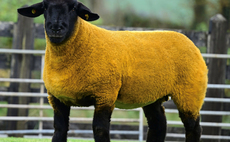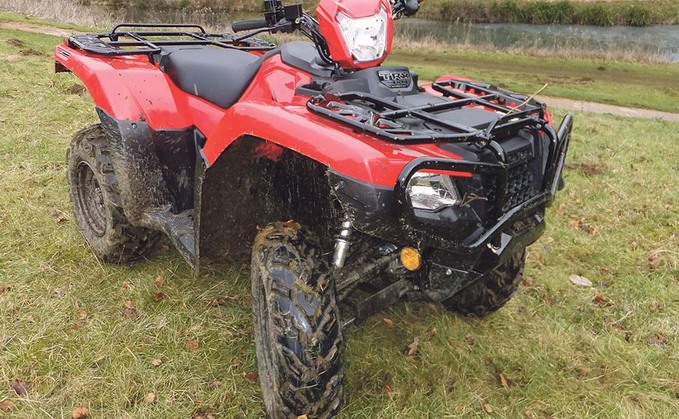
Criminal gangs are increasingly targeting UK farms in search of smaller high value items such as quad bikes and all-terrain vehicles (ATVs), with farmers footing a £3.1 million bill in 2019.
Data from NFU Mutual showed the value of quad bike and ATVs claims were continually rising year-on-year, up from £1.8m in 2015, rising to £2m in 2016, £2.3m in 2017 and £2.6m in 2018.
In 2019, the total cost for Scotland and Wales stood at £126,944 and £294,654 respectively.
A poll of 524 �������� Guardian readers found 25 per cent had had a quad or ATV stolen in the last five years.
Rebecca Davidson, rural affairs specialist at NFU Mutual, said: "The fact these [vehicles] are highly portable and easier to conceal is part of the appeal for criminal gangs who see quad theft as big business both here and to meet demand from overseas.
"Police sources have told us that criminals may also be using these vehicles to commit other crime on rural terrain, as well as selling them on."
Chris Piggott, rural vehicle crime intelligence officer at the National Vehicle Crime Intelligence Service (NAVCIS), said: "The pattern suggests there are several gangs who move across force borders to commit these crimes because they know there is profit in it for them.
"Yorkshire gets hit very hard, as does Cumbria, Durham, Lancashire, Essex, Scotland, Lincolnshire and Cambridgeshire. But at the moment, most of Wales is being targeted.
"As soon as there is some movement or police activity, the criminals move on."
DC Piggott added thieves often operated with ‘shopping lists of products', with criminals sending photographs of vehicles for approval before stealing to order.
Some stolen vehicles end up overseas, mostly in Eastern Europe.
Re-identified
"Often they have been re-identified and marketed as a second-hand vehicle which makes it hard to repatriate them back to the UK as you have to prove the purchaser had criminal knowledge it was stolen," he added.
As well as stripping and selling vehicles for parts, DC Piggott warned a ‘fair percentage' of stolen quad bikes and ATVs made it back onto the UK market with a new identification.
"These criminals are professional in how the re-identify vehicles, such as restamping engine numbers so they come back as legal," he said.
"The vehicles can pass off as genuine and can be sold from unlicensed sites such as Gum Tree, Facebook market place, eBay.
"While everyone loves a bargain, and thinks they have scored a good deal, it is often cheap for a reason."
Intuitive
Writing in NFUS' Scottish Farming Leader, Alan Dron, inspector and Police Scotland's rural crime co-ordinator, warned criminals were more intuitive and using smarter technology to carry out crimes, urging 'any steps farmers, crofters and small holder can take to protect their property will help'.
"Currently the popular targets are quads, trailers and tractors," Inspector Dron said.
"There is a market for them but sadly do not be fooled into thinking lightening does not strike twice.
"Quite often the thieves can return a few weeks after the initial incident as they know there will be a new replacement vehicle on site that is there for the taking.
"We do record a number of repeat offenses."
What can be done?
To tackle the overseas demand, three NAVICS officers patrol UK ports with the ability to send national alerts for specific intelligence.
DC Piggott said: "We also have good links with Flexistowe, Suffolk, Tilbury and London Gateway, as well as at Southampton, Dover, Portsmouth, Wales, Hull and Merseyside.
"The national recovery rate for stolen ATVs and quad bikes stands at five percent, with most recoveries coming off the back of tracking products.
"These devices can alert owners there are criminals on their properties, making phone calls to the owner to let them know someone is tampering with their vehicle or if it has left its geo-fence.
"Using tracking products and additional marking gives farmers the best chance of recovery."
While adding everyone had a part to play in preventing this type of crime, he called on manufacturers to update their ‘antiquated' security and 'design out the crime' by fitting immobilisers as standard.
He added various police forces across the UK were working hard to investigate incidents and come up with new ways of tackling the crime.
Developing
Rob Taylor, North Wales Police Rural Crime team manager, confirmed his team were developing an 'exciting project' which looks at the latest technology to prevent farm crime, with more information to be unveiled at a later date.
NFU chief land management adviser, Sam Durham, said the union is continuing to raise the issue of rural crime with Government and industry and recently held a roundtable with the police and representatives from insurance companies, manufacturers and security experts.
"It is crucial that rural crime is treated by Government as a priority issue for rural communities, with a new co-ordinated approach between government departments, police and local authorities," Mr Durham said.
"I would also encourage farmers to routinely assess their farm security to ensure their farms are as secure as possible and ensure all vehicles are locked, with the keys removed, and are kept in secure buildings."
Case Study: Izzy Eames, Lancashire
For Izzy Eames, a sheep and beef farmer's daughter from Abbeystead, Lancashire, the theft of their quad bike two weeks before lambing time began in 2020 caused the family unnecessary stress and inconvenience.
Ms Eames said: "It was quite scary as the thieves knew exactly where we kept the quad bike and the right time to steal it, almost as if they had been watching us.
"They came in the middle of the night, cut the security light and stole it.
"I was away on placement as part of my degree but felt really upset that someone could steal a quad bike so close to lambing - a time which is stressful enough itself.
"Thankfully our Polaris was away being serviced as I am sure they would have taken that too."
Ms Eames added the farm had upped its security since the incident and installed two night-vision cameras.
"It has made us feel safer, especially if I am in the house on my own while my dad is out scanning sheep in the winter months," she said.
"As farmers, we should be able to leave equipment where we want on our property without fearing it will be stolen.
"Thousands of pounds' worth of cars are parked on city streets each night but because we are in the rural sticks, policing is less sleek and secure, leaving farmers, like us, vulnerable to these organised gangs and picking up the bill afterwards."
Mr David Eames added: "While the police are proactive in their efforts, their resources are stretched and the emphasis is on farmers to ensure their kit is properly insured with trackers."
Top security tips from Chris Piggott
- Insist on a chipped key and immobilisation system (all keys should be removed and stored securely when not in use).
- Consider a tracking and immobilisation device - most modern tracking devices are GPS enabled, with alarms/alerts that will send a message informing you if your machine is being tampered with. You can also set working hours and Geofences to alert you if a machine is being moved outside of a pre-set working area.
- Use a marking system that will uniquely identify your property to police.
- Keep records of vehicle identification numbers/make and model including were possible images of all vehicles and machinery owned.
- Consider using a simple mechanical security system - i.e. steering /brake lock, ground anchor, wheel clamp, quadcage etc these devices are both visible and physical deterrents to thieves.
FUW's response

��������' Union Wales deputy president Ian Rickman said rural crime is on the rise and the union are working closely with the police forces across Wales to combat this.
"�������� are encouraged to keep their assets safe, such as not leaving quad bikes out in the yard and removing keys from their tractors, and using cameras to record the comings and goings on their farms, as well as reporting suspicious activity to the police," he said.
"We are also encouraging farmers to ensure that their assets are insured properly."
NFUS' response

NFUS senior communications manager Diana McGowan said rural crime remains a blight on Scotland's countryside but added progress is being made through the union's work with Police Scotland and other partners in the Scottish Partnership Against Rural Crime (SPARC).
"With vehicle, quad and machinery theft still an all-too-common occurrence on Scottish farms and crofts, we have used the most recent edition of our membership magazine Scottish Farming Leader to remind all members of simple steps that can be taken to protect property against both opportunistic and organised crime," she said.









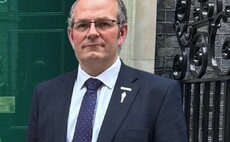
![Farming industry get behind FG's SAVE BRITAIN'S FAMILY FARMS campaign: "[This] campaign will help deliver our message to Government"](https://image.chitra.live/api/v1/wps/af45f99/0f91ad70-ab9b-4ac9-bc2a-53dfa9e75558/10/BOB-Nigel-Owens-0848-Recovered-230x142.jpg)

